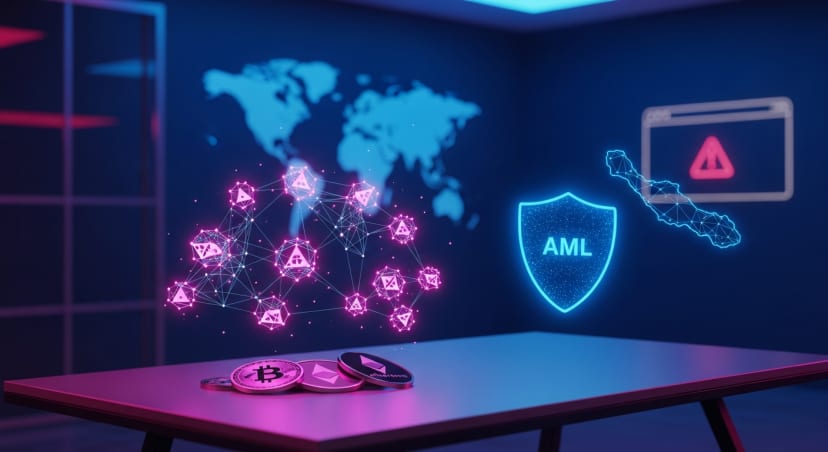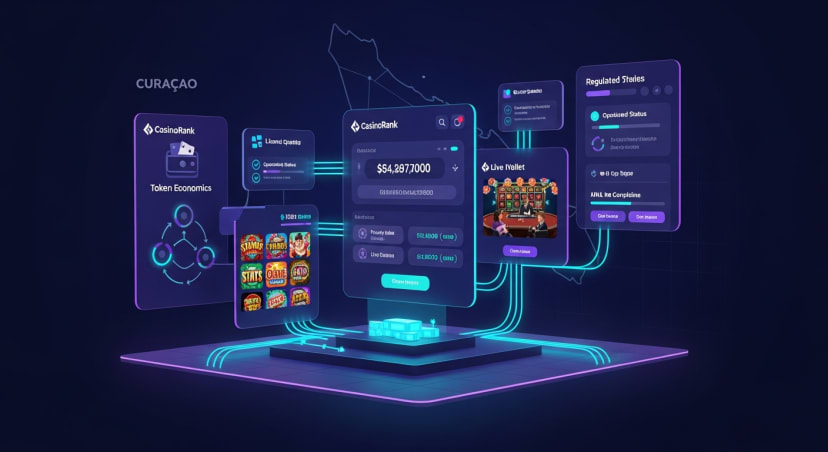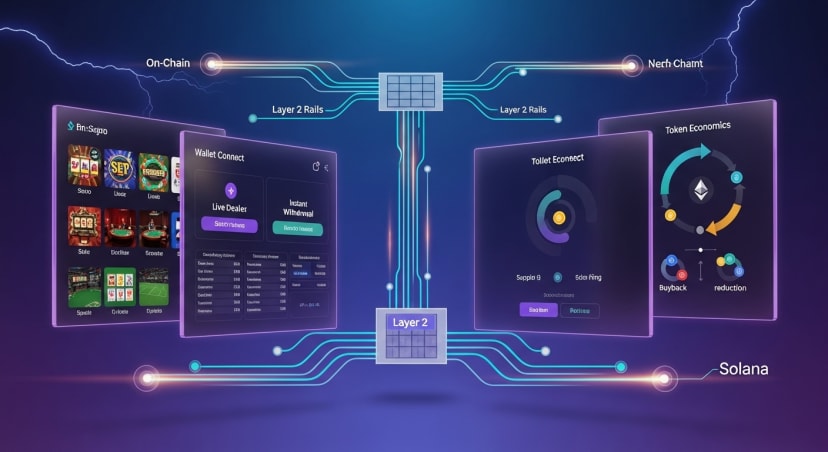Solana and L2s Drive Crypto Casino Speed Surge

Recommended casinos
Key Takeaways
- The Malta Gaming Authority has tightened its AML protocols for crypto transactions, mandating the integration of blockchain analytics across licensed operators.
- Solana emerges as a dominant network for high-volume crypto casinos, enabling sub-second settlements and reducing user fees by 90%.
- Curacao e Gaming streamlines licensing for Layer-2 integrations, boosting operator adoption in emerging Asian markets.
- On-ramp partnerships with Transak expand fiat-to-crypto access in Europe and Australia, enhancing accessibility for non-crypto natives.
Malta Mandates Blockchain Analytics for Crypto AML Compliance
The Malta Gaming Authority (MGA) has introduced mandatory real-time transaction monitoring for all crypto casino operators under its jurisdiction, effective November 1, 2025. This update requires the integration of blockchain analytics tools, such as Chainalysis, to trace cryptocurrency flows and flag suspicious patterns, addressing concerns over illicit fund laundering estimated at $12 billion annually through gambling platforms. Involved parties include MGA-licensed operators such as those running on Ethereum and Polygon networks, with supported tokens encompassing BTC, ETH, USDT, and SOL.
Technically, the framework leverages API connections to on-chain explorers for automated risk scoring, where transactions exceeding €1,000 trigger enhanced due diligence (EDD), including source-of-wealth verification. In Malta's crypto-friendly ecosystem, this builds on the existing Sandbox Framework, ensuring compliance without stifling innovation. Geographically, it impacts operators serving EU markets, with rollout completed within 90 days.
For operators, this means investing in AI-driven monitoring to avoid fines up to 10% of annual turnover, while users gain heightened security against fraud. Broader implications include setting a precedent for other jurisdictions, such as Gibraltar, potentially standardizing global crypto gambling oversight, and fostering trust in the €5 billion European iGaming sector.
Source: Malta Gaming Authority
Solana Casinos Surge with Native Integrations for Instant Play
Solana-based crypto casinos reported a 40% volume increase in November 2025, driven by native smart contract deployments that enable provably fair games at over 4,000 transactions per second. Platforms like Dexsport and Wild.io integrated Solana's Proof-of-History consensus, supporting tokens such as SOL, USDC, and BONK for seamless deposits and withdrawals. This follows Solana's upgrade to handle 65,000 TPS peaks, slashing gas fees to under $0.01 per bet.
Implementation involves on-chain random number generation via Chainlink VRF, verifiable through explorers like Solscan, ensuring tamper-proof outcomes for slots, crash games, and live dealers. Curacao-licensed operators lead adoption, targeting Asia-Pacific users where latency-sensitive play boosts retention by 25%. Timeline: Integrations were rolled out after the Firedancer upgrade in October.
Operators benefit from reduced infrastructure costs, scaling to 10,000+ games without downtime, while players enjoy near-instant liquidity—critical in high-stakes environments. Industry-wide, this shift in market share from Ethereum L2s positions Solana as the go-to for mobile-first gambling in Australia and Estonia, where regulatory nods for fast networks accelerate growth.
Source: CryptoManiaks
Curacao Reforms Licensing to Embrace Polygon and Arbitrum
Curacao's eGaming Commission unveiled simplified licensing pathways on November 4, 2025, prioritizing integrations with Polygon and Arbitrum for crypto casino applicants. This targets operators in emerging markets, such as South Asia, supporting MATIC, ARB, and stablecoins for optimized cross-chain bridging via the Wormhole protocol. Reforms reduce approval times from 12 to 6 weeks, emphasizing gas-efficient L2s for scalable d Apps.
Technically, licenses now mandate zero-knowledge proof (zk-proof) verifiability for game fairness, with Arbitrum's optimistic rollups enabling sub-$0.05 fees and 2-second finality—ideal for real-time betting. Involved: Over 50 new applicants, including those bridging from Ethereum mainnet. Jurisdictional focus: Curacao's flexible regime appeals to non-EU operators, as it avoids stringent MGA rules.
Impacts include a 30% faster market entry for developers, lowering barriers for Polygon-based provably fair roulette and NFT-linked jackpots, which benefits users with lower entry points (minimums of €10). This could double Curacao's 200+ licensees by 2026, signaling a shift toward DeFi-gambling hybrids and influencing similar updates in Gibraltar.
Source: Curacao eGaming
Transak On-Ramp Deal Boosts Accessibility in Australia and Canada
Crypto payment provider Transak partnered with five major casinos on November 6, 2025, enabling fiat-to-crypto on-ramps in Australia and Canada via local bank transfers and cards. Supported: AUD and CAD conversions to USDT on Avalanche and BSC, with KYC streamlined through biometric verification compliant with provincial regulations.
The integration utilizes Transak's API for over 136 cryptocurrencies, processing conversions in under 60 seconds with fees ranging from 1% to 2%, and is geo-fenced to exclude restricted areas. Timeline: Live for operators like BC.Game, serving 1 million+ users.
Operators see 20% deposit uplift from fiat users, easing crypto onboarding while meeting AML standards via automated reporting. Users in crypto-cautious Canada gain seamless access without needing to set up a wallet, thereby enhancing inclusivity. Broader effects: Reinforces on-ramp normalization in regulated markets, potentially inspiring Estonia's e-Residency program to adopt similar tools for global operators.
Source: Transak











